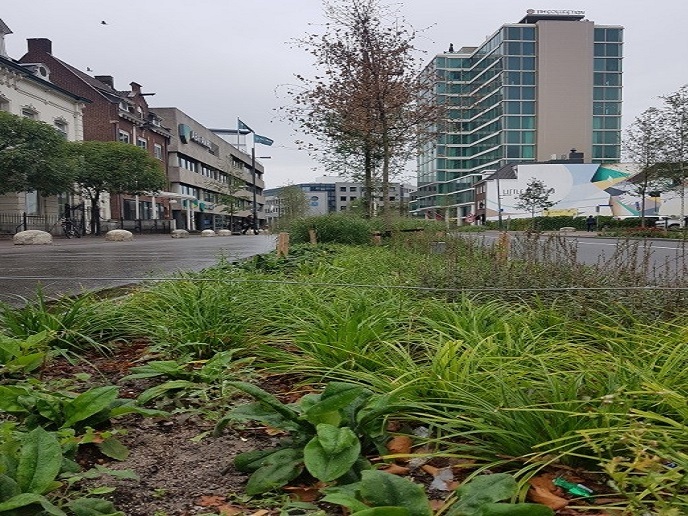ICT tools, methodologies and models to improve cities’ climate and water resilience
Cities face significant challenges due to climate change. Inspired and supported by nature, NBS are cost-effective, provide environmental, social and economic benefits, and make cities more resilient to climate change. To address the challenges, the EU-funded UNALAB(opens in new window) project is implementing and demonstrating innovative, replicable and tailored NBS like green spaces, wetlands, storm water retention ponds, green walls and roofs in Eindhoven (the Netherlands), Genova (Italy) and Tampere (Finland). In these cities, companies, research institutions, the public sector and citizens all work together to carry out NBS. “The overall ambition of UNALAB is to achieve significant and measurable improvements in the urban living environment and to enhance urban resilience to changes in the global climate,” says coordinator Laura Wendling.
Smart business and finance models, decision support tools
The UNALAB team is developing a suite of market-ready, user-friendly solutions. A broad range of tools, methodologies, models and technologies has already been delivered. A toolkit(opens in new window) contains a wide variety of tools and methods used in the three cities to support cocreation in exploring, designing, implementing and evaluating NBS that are helping them tackle specific climate and water-related challenges. The technical handbook(opens in new window) is a living document that provides accurate, detailed information on the full range of potentially applicable NBS in support of urban climate and water resilience. Municipal governance guidelines(opens in new window) explore various governance-related barriers that obstruct the effective integration of NBS in cities and highlight actions to help overcome these barriers. Business models and financing strategies(opens in new window) provide city planners with business model examples for selected NBS, as well as potential financing strategies that could support NBS implementation and operation efforts. A value model(opens in new window) establishes links between identified NBS, associated beneficiaries and their individual benefits, as well as available financing options. The project has produced several reports. The UNALAB ULL report(opens in new window) presents an Urban Living Labs scientific framework for cities to use. The NBS Performance and Impact Monitoring report(opens in new window) summarises the classification and mode of action of NBS, a selection of key indicators for NBS performance and impact, and design of an NBS monitoring scheme and baseline, together with a set of measurement/monitoring methods for key indicators and metrics. The Value Chain Analysis report(opens in new window) analyses the value chain, the replicability and the upscaling potential of selected NBS in three cities. A set of online tools has also been produced. The Open Nature Innovation Arena(opens in new window) for city authorities lists relevant NBS challenges and offers participating stakeholders like citizens the opportunity to share ideas in resolving these challenges. The City Performance Monitor(opens in new window) used by the cities increases stakeholder and citizen awareness of urban conditions through a representation of the effectiveness of NBS implemented in a given city using social, environmental and economic performance indicators. The NBS Simulation Visualisation Tool(opens in new window) makes it possible to evaluate and discuss how much NBS could impact urban change adaptation, simulating the effects on social, economic and environmental domains.
Innovative, socially engaged, citizen-driven paradigm
“Thanks to nature-based innovation jointly created with stakeholders – by and for people – UNALAB will support the creation of healthier, greener European cities, resilient enough to confront climate change challenges,” concludes Wendling. “The vision is better living conditions for all, increased green infrastructure and biodiversity, improved air and water quality, reduced noise and lower health costs, enhanced mobility conditions and greater social cohesion.”







